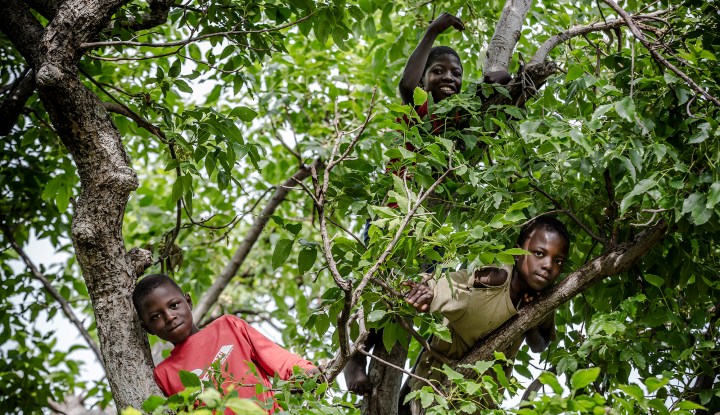OP-ED
Covid-19 impacts risk exacerbating child labour in agriculture

Friday 12 June is World Day Against Child Labour. With 20% of all African children in child labour, the continent has the highest prevalence of child labour in the world, according to the Food and Agriculture Organisation of the United Nations (FAO).
The number of children between the ages of five and 17 working in agriculture has been on the rise globally since 2012. Increasing from 98 million to 108 million children, agriculture accounts for 71% of all child labour.
The increase in child labourers has been driven by prolonged conflicts and climate-related natural disasters, followed by forced migration. Efforts to reduce child labour in agriculture have also been hampered by persisting rural poverty and the concentration of child labour in the informal economy and as unpaid family labour, operating as “hidden workers”.
Ahead of the World Day Against Child Labour on June 12, it is important to note that the Covid-19 pandemic threatens to further worsen the situation.
The FAO foresees changes in food consumption patterns – towards staples and away from fruits and other perishables – as well as disruptions in food supply chains due to lockdowns and movement restrictions. These are likely to significantly affect livelihoods in rural areas where 82% of Africa’s poor live, of whom 70% derive their income from farming. Also, the rural poor may be further affected by the reduction or loss of remittances, an essential source of additional income for many vulnerable households. These families are likely to resort to the use of child labour, among other negative coping strategies, made easier by the closure of schools in response to the spread of Covid-19.
In the immediate term, children may be asked to support their families on and off the farm. They could be exposed to hazardous or exploitative working arrangements, particularly where child labour is used to compensate for acute labour shortages due to movement restrictions. Children engaged in child labour before the crisis are now likely to face worsened conditions, shouldering more responsibility to keep their families food-secure.
In the short to medium term, prolonged closure of schools may increase the risk of children dropping out of school and permanently engaging in employment, especially in the likely scenario of drawn-out socioeconomic effects of the pandemic. Without furthering their education, children will not gain the skills and capacity needed for decent jobs in future, perpetuating the cycle of poverty and hunger, particularly in rural areas.
Low household incomes and poverty are among the root causes of child labour in agriculture, conditions worsened by the pandemic. It is, therefore, encouraging to see the number of countries considering employment and social protection policies as critical in their Covid-19 response. However, for these to be effective in mitigating the risk of increasing child labour in the agricultural sector, they need to reach vulnerable households in rural areas.
In addition to the measures considered, governments should install measures ensuring the safe movement of agricultural workers to critical areas during crucial planting and/or harvesting seasons. These adaptive response measures can mitigate the need to use child labour to compensate for labour shortages.
Targeted support to rural areas and ongoing information campaigns on Covid-19 should include dedicated messages on child labour. Awareness-raising campaigns on the importance of preventing child labour and providing examples of age-appropriate and non-hazardous work for children are essential. These campaigns can be run on mass media such as digital platforms, rural radio and through producer organisations and other rural workers’ organisations. A key message should be the importance of sending children back to school once restrictions are lifted to prevent an increase in the school dropout rate, especially of young girls.
Zero Hunger in Africa will not be possible without the eradication of child labour. If Africa is to achieve its aspirations under its Agenda 2063, particularly Aspiration 6, then protect the future generation and help them realize their full potential. DM
Janetta Carlucci is programme support consultant, Decent Rural Employment, Food and Agriculture Organisation (FAO) Regional Office for Africa.
"Information pertaining to Covid-19, vaccines, how to control the spread of the virus and potential treatments is ever-changing. Under the South African Disaster Management Act Regulation 11(5)(c) it is prohibited to publish information through any medium with the intention to deceive people on government measures to address COVID-19. We are therefore disabling the comment section on this article in order to protect both the commenting member and ourselves from potential liability. Should you have additional information that you think we should know, please email [email protected]"

















 Become an Insider
Become an Insider